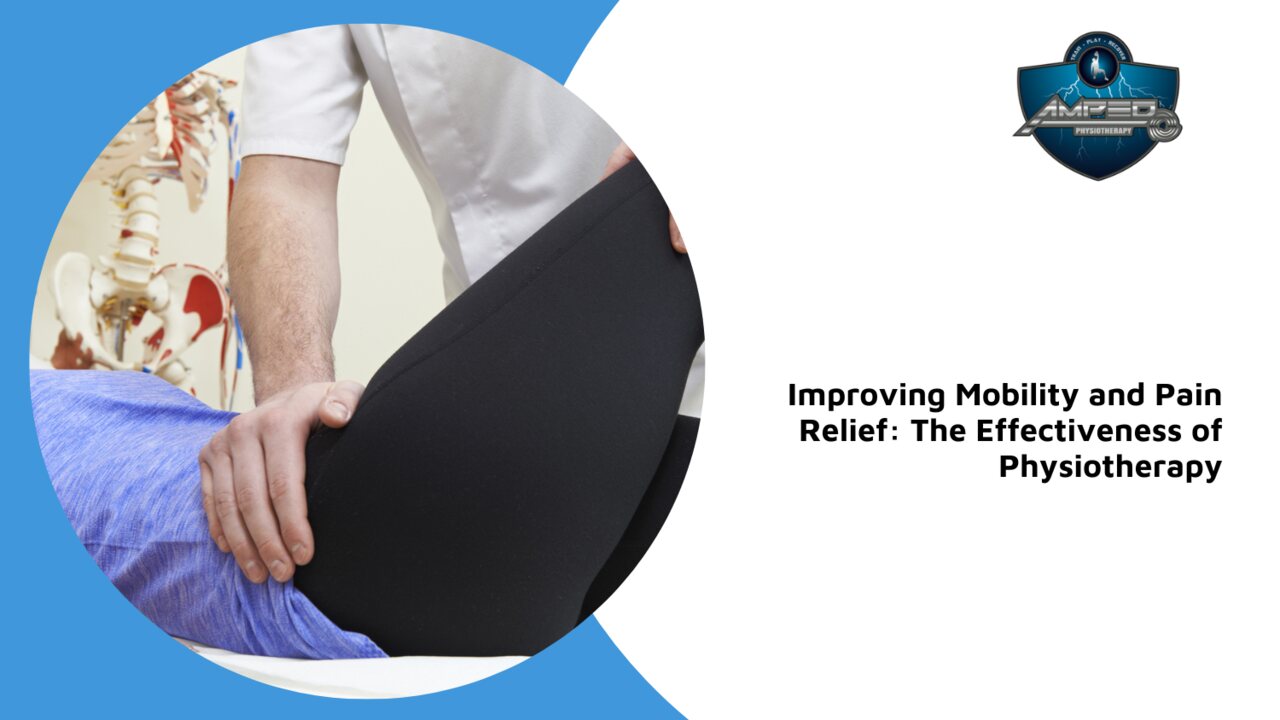Physiotherapy is a cornerstone of modern healthcare, offering a holistic approach to managing pain, improving mobility, and recovering from injuries. By addressing the root causes of physical impairments, physiotherapy goes beyond symptom relief, focusing on long-term solutions for better health and functionality. Whether you’re dealing with chronic pain, recovering from surgery, or aiming to prevent future issues, physiotherapy provides evidence-based treatments that empower you to take control of your recovery and overall well-being.
Understanding the Role of Physiotherapy in Health and Recovery
Physiotherapy is a healthcare discipline focused on restoring and maintaining physical function, movement, and well-being. It combines a variety of techniques to address pain, mobility issues, and physical impairments.
- Assessment: A physiotherapist begins by evaluating your medical history, symptoms, and physical limitations. This thorough assessment ensures a personalized treatment plan targeting your specific needs.
- Treatment Approaches: Physiotherapy incorporates hands-on techniques such as joint mobilization, therapeutic exercises, and advanced modalities like acupuncture. These treatments aim to alleviate pain, improve range of motion, and promote healing.
- Holistic Care: Beyond addressing immediate issues, physiotherapy focuses on preventing future problems by improving strength, flexibility, and overall posture.
- Empowering Clients: Physiotherapists educate clients about their condition and provide self-management strategies, enabling them to take an active role in their recovery.
By addressing the root causes of discomfort, physiotherapy promotes natural healing and helps you regain independence in your daily life.
Common Conditions Physiotherapy Can Treat Effectively
Physiotherapy is a versatile treatment approach that addresses a wide range of conditions across different age groups and activity levels. Some of the most common conditions include:
- Musculoskeletal Injuries: Physiotherapy effectively treats injuries such as sprains, strains, and fractures. It reduces pain, promotes tissue healing, and restores strength and mobility.
- Chronic Pain Conditions: For individuals with conditions like fibromyalgia, arthritis, or lower back pain, physiotherapy provides relief through targeted exercises and pain management techniques.
- Sports Injuries: Athletes recovering from ligament tears, tendonitis, or overuse injuries benefit from physiotherapy’s personalized rehabilitation programs. These programs ensure safe and efficient recovery while minimizing the risk of re-injury.
- Post-Surgical Recovery: After surgeries like joint replacements or spinal procedures, physiotherapy helps restore mobility, reduce scar tissue formation, and speed up recovery.
- Age-Related Issues: Older adults facing challenges like osteoporosis, joint stiffness, or balance problems benefit from physiotherapy’s gentle and targeted exercises designed to improve mobility and prevent falls.
By addressing these diverse conditions, physiotherapy enhances quality of life and promotes long-term physical health.
Chronic Pain Management: Is Physiotherapy an Effective Option?
Chronic pain is a persistent issue that significantly impacts daily life, limiting mobility and causing emotional strain. Physiotherapy is widely recognized as a non-invasive, effective approach to managing chronic pain. Unlike temporary solutions such as medication, which primarily mask symptoms, physiotherapy targets the underlying causes of chronic pain, including muscle imbalances, joint dysfunction, and nerve irritation.
Physiotherapists develop tailored treatment plans that may include stretching exercises, strengthening routines, and manual therapy. These personalized programs address specific pain points and work to restore functionality. Additionally, modalities such as heat therapy, acupuncture, and dry needling are used to reduce inflammation, interrupt pain signals, and promote relaxation.
Physiotherapy also focuses on improving flexibility, balance, and mobility, enabling individuals to perform daily tasks more comfortably and with greater ease. Beyond physical benefits, it addresses the mental health challenges often associated with chronic pain. The active involvement required in physiotherapy empowers clients, boosting confidence and mental well-being. For those seeking sustainable relief, physiotherapy provides a comprehensive and lasting solution that enhances overall quality of life.
Maximizing Effectiveness: Ideal Frequency of Physiotherapy Sessions
The frequency of physiotherapy sessions varies based on the individual’s condition, its severity, and their treatment goals. A physiotherapist evaluates these factors to create a tailored plan. For acute injuries, such as recent sprains or muscle strains, people may need two to three sessions per week to manage pain and kickstart the recovery process effectively.
For chronic conditions, including arthritis or fibromyalgia, progress tends to require weekly or bi-weekly sessions over several months. This consistency allows for gradual but noticeable improvements. Post-surgical recovery often demands more frequent sessions in the early stages, typically two to three times per week, before transitioning to less frequent appointments as strength and mobility improve. Athletes recovering from sports injuries may also require one or two sessions per week, focusing on progressive exercises and ensuring a safe return to activity.
For general health or preventive care, monthly sessions or periodic check-ins may suffice to maintain mobility and address minor issues before they escalate. Regardless of the condition, consistency in attending sessions and following prescribed home exercises is crucial for maximizing the benefits of physiotherapy and ensuring long-term results.
Getting the Most Out of Physiotherapy Sessions: Essential Tips
Getting the most out of your physiotherapy sessions requires a combination of active participation, commitment, and the right mindset. Here are some tips to enhance your recovery journey:
- Communicate Openly: Share all relevant details about your condition, symptoms, and lifestyle with your physiotherapist. The more they know, the better they can tailor the treatment to your needs.
- Follow Your Treatment Plan: Adhering to prescribed exercises and techniques, both during sessions and at home, is critical for achieving results. Consistency is key.
- Wear Comfortable Clothing: Dress in clothing that allows freedom of movement, such as athletic wear, to make it easier to perform exercises and for the therapist to assess your movement.
- Stay Patient: Recovery through physiotherapy is a gradual process. It’s important to set realistic expectations and trust the timeline recommended by your physiotherapist.
- Incorporate Lifestyle Changes: Complement your physiotherapy with healthy habits, including proper nutrition, regular hydration, and adequate rest, to support your body’s natural healing process.
- Ask Questions: If you’re unsure about any aspect of your treatment or exercises, don’t hesitate to ask your physiotherapist for clarification or demonstrations.
- Track Your Progress: Keep a log of your improvements, such as reduced pain or increased mobility. Tracking small wins can boost motivation and reinforce your commitment.
By being actively involved in your treatment, you can optimize the benefits of physiotherapy and achieve better results.
Is Physiotherapy Effective Enough to Prevent the Need for Surgery?
Physiotherapy is often a highly effective alternative to surgery, allowing individuals to regain function and alleviate pain without the need for invasive procedures. For injuries like ligament tears, joint pain, or certain types of herniated discs, physiotherapy can provide conservative treatment that addresses symptoms while strengthening the affected area. This approach often reduces the need for surgical intervention.
By improving the strength and stability of muscles surrounding injured joints, physiotherapy enhances functionality and reduces strain. This is particularly beneficial for conditions affecting the knees or shoulders. Additionally, techniques such as manual therapy, acupuncture, and exercise programs help manage pain and inflammation, offering results comparable to those achieved through surgery in some cases.
For degenerative conditions such as osteoarthritis, physiotherapy may postpone or entirely avoid the need for joint replacement surgeries. It achieves this by improving joint mobility, reducing strain, and enhancing overall support around the affected area. However, it’s important to note that while physiotherapy is highly effective in many scenarios, the suitability of this approach depends on the specific condition. Consulting with both a physiotherapist and physician is essential to determine whether physiotherapy is the most appropriate course of action for your unique circumstances.
Are There Any Cases Where Physiotherapy Is Not Recommended?
Although physiotherapy is widely beneficial, there are certain cases where it may not be the most suitable treatment or may require modifications:
- Severe Trauma or Structural Damage: For conditions involving complete ligament tears, fractures, or severe joint dislocations, surgery might be necessary before physiotherapy can be effective.
- Infections or Inflammation: Acute infections, such as septic arthritis, need medical treatment before physiotherapy can safely begin.
- Uncooperative Clients: Physiotherapy relies on active participation. If clients are unable or unwilling to follow the prescribed exercises and treatment plan, the results may be limited.
- Unrealistic Expectations: Physiotherapy can improve functionality and reduce pain, but it may not fully reverse certain degenerative or chronic conditions.
Physiotherapy is most effective when used as part of a well-rounded treatment plan tailored to the individual. Consulting with a healthcare professional ensures that physiotherapy is appropriate for your condition and goals.
Personalized Treatment Plans
If you’re looking for a trusted partner in your recovery journey, Amped Physiotherapy in Ottawa is here to help. Our experienced team offers personalized treatments designed to alleviate pain, improve mobility, and enhance your quality of life.
Whether you’re managing chronic pain, recovering from surgery, or seeking to prevent injuries, we provide the care and guidance you need to achieve long-term results. Contact us today to schedule your appointment and take the first step toward a healthier, more active lifestyle.










